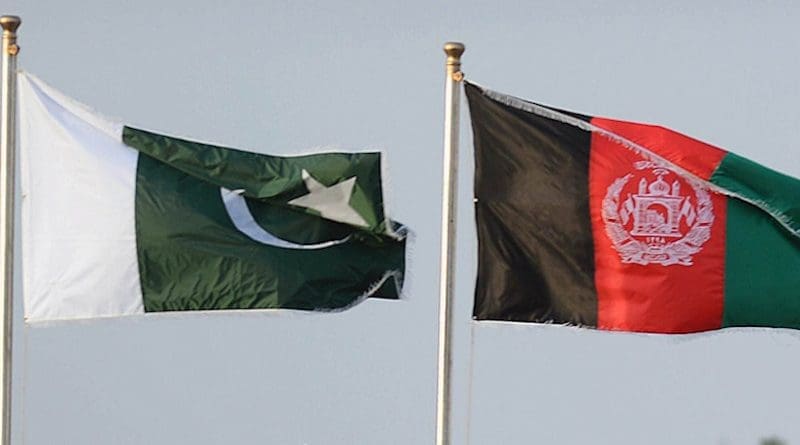Pakistan’s Diplomatic Endeavors Towards Afghanistan – OpEd
During a televised address in 1947, Pakistani founder Muhammad Ali Jinnah outlined the country’s foreign policy objectives. Friendship with all nations throughout the globe is the cornerstone of our foreign policy, he added. Since then, Pakistan has maintained an international diplomatic network. There are no Muslim majority countries possessing nuclear weapons. After Indonesia, it is home to the second-largest Muslim population in the world. Central Asia and the Middle East, which are rich in energy, are linked to South and East Asian population centres by water and land. Afghanistan, China, India, and Iran all share its borders, making it a geopolitical hotspot.
For a long time, Afghanistan and Pakistan have been at odds. This is due to a variety of factors, such as worries about sovereignty, security, geopolitical dynamics, cross-border linkages, and commerce, among others. The long-term stability of Afghanistan and the surrounding area will be determined by these variables.
As Pakistani Prime Minister at the time, Mr. Imran Khan made a statement saying that the Taliban were breaking the shackles of enslavement. Despite the country’s best efforts, things are not going according to plan. Despite concerns that Pakistan’s influence over the Afghan Taliban may be used as a bargaining chip in diplomatic negotiations, the United States has little interest in Pakistan, while China deepens its connections with the Taliban. As predicted, terrorist assaults near the Pakistan-Afghanistan border by the Pakistani Taliban (TTP) seem to be more common than previously thought. There were around 207 terrorist strikes in Pakistan in 2021, according to the Pakistan Institute for Peace Studies (PIPS). An increase of 42% over the previous year. 335 individuals were killed as a result of these incidents. 87 assaults in 2018 were carried out by the TTP, according to PIPS, an increase of 84% from 2020. There were 282 TTP operations in 2021, and 42 attacks in January 2022, according to the TTP’s claims. As many as 500 police officers were slain in 2021. Recognizing the Taliban as the legitimate government of Afghanistan, despite these issues, would be the second-best option for Pakistan but Islamabad will go with the world. In order to properly combat terrorist organisations like the TTP and prevent huge numbers of people from flocking to Pakistan and increasing strain on its already poor economy, only then can they be dealt with.
Trade and other concerns were discussed with Taliban leaders in Kabul on January 29-30, 2022, as per the former National Security Advisor of Pakistan – Dr Moeed Yusuf. That promise was made to him by leaders of the Taliban. This visit was meant to discuss Pakistan’s humanitarian issues and proposals for strengthening economic relations with Afghanistan in order to aid the country, according to a statement from the NSA. Both parties are believed to have discussed building a border barrier and expanding the China-Pakistan Economic Corridor (CPEC).
At the 48th meeting of the OIC CFM, developments in Afghanistan and their humanitarian impact on the Afghan people was one of the primary topics discussed. An Afghan Humanitarian Trust Fund will be established by Pakistan as the host nation. Donations from OIC members, Islamic financial institutions, international partners, and donors will be used to support this fund operated by the Islamic Development Bank (IDB). Afghanistan, where 95 percent of the population lacks access to food and poverty is on the rise, will get a portion of the money, according to the United Nations. The Taliban-controlled government in Afghanistan has fought more than any other country to gain international recognition as a legitimate administration and to deliver humanitarian supplies to prevent people from starving.
Pakistan and Afghanistan will continue to work together on major infrastructure projects such as the TAPI, CASA1000, and PAKAFUZ railways, which are presently on hold due to the political situation in Afghanistan.
Recently, Pakistan has engaged in a significant amount of diplomatic activity. Government-to-government diplomacy and religious diplomacy are two of Pakistan’s diplomatic priorities. After leaving Afghanistan, the US has had difficulty working with Pakistan, but it may maintain its influence by forming new alliances with individuals who work together. To help halt the starvation in Afghanistan, Pakistan has pushed hard for the rest of the world to acknowledge that the Taliban are in authority and deliver humanitarian relief.
The author holds an M.Phil from National Defence University and freelance writer and can be reached at [email protected].


Pakistan’s miscalculated policy towards supporting the Taliban has already undermined its own security by embolding the TTP and other religious extremist groups. Within next few years Pakistan will face what experienced by Afghanistan.